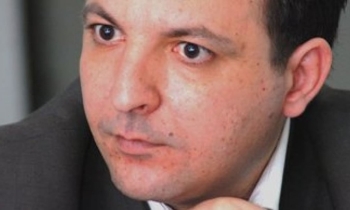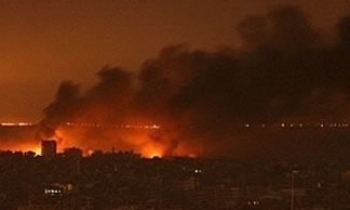New Delhi: The nation celebrated National Press Day on November 16. It was the day on which the Press Council of India started functioning as a moral watchdog.
Today, the media is everywhere. Take for example, the kidnapping of three-year-old Anant. The media is reporting everything from the investigation leads to the personal woes of his family.
When Jessica Lall is denied justice, press leads a campaign, so much so that when a lawyer like Ram Jethmalani decides to defend the main accused, the media holds him guilty of not having a conscience.
In the era of 24-hour news channels and hi-tech sting cameras, media is and has become a major part of our lives. If we want the judges to be judged through a judicial council, should we also not judge those who are supposed to be the providers of information? An attempt has already been made to regulate the media through the Broadcast Bill.
But should the media be regulated?
This was the question addressed by an elite panel on CNN-IBN's Prime Time show Face The Nation. Bhupendra Chaubey, Chief Political Correspondent of CNN-IBN, moderated the discussion, which had the participation of Shashi Kumar, Chairman, Asian College of Journalism, Chennai; Madhu Trehan, Senior Journalist; and Aniruddha Bahal, Editor-in-Chief of Cobrapostpost.com.
The media is hailed as a responsible medium that not only maintains high standards but is also undeterred by extraneous factors. Is it the time to worry about what's happening within the journalist fraternity?
According to Trehan, who writes regularly for the Outlook magazine, "The media is highly regulated at this point, not by the state, not by the Government, but by the business houses, politicians and other powerful people."
She points out that the decisions of what kind of programmes are to be shown on TV are controlled and taken mainly by business houses. "No organisation, whether print or television, can do a story that hurts an advertiser. However, the democratic part of it is that if the viewers do not like a programme, they can switch it off."
Terming India as a country, which has 'no history of obedience', Trehan says, "If the Government thinks that it can protect itself against investigations through the laws that it is passing, then it is mistaken. Because, the press will find other ways to do it."
But then, if regulation already exists within the media, why is there a need to regulate it further? "The context is regulation specifically by the state, and that is a looming danger before us and something we ought to resist," says Shashi Kumar.
He adds that there has been an incipient effort by the state to regulate the media, particularly the electronic media, by making it divisible. But then, he states emphatically, "You cannot divide the free press. It looks like the print media has a different yardstick and the electronic media has another one. The Government feels that the electronic media needs external restraints. It is totally unacceptable as it goes against the very spirit of democracy."
Aniruddha Bahal brings in an interesting point. "It hurts them more and so they feel the need to control it more. For instance, Prime Minister Manmohan Singh was lauded for the de-licensing regime in the broadcast media during his earlier avatar as the Finance Minister. Now, he is at the helm of affairs and the Centre wants to bring in licensing for all television channels and any other broadcast authorities. The only need for regulation arises out of a will to monitor content, to bring in the so-called 'nebulous content code'."
But then should the media on its own take the responsibility of holding a trial, conducting investigations and announcing the verdict. Isn't that a dangerous trend?
Trehan says, "In the context of the Jessica Lall case, the media has not held him (Manu Sharma) guilty. They are only raising questions and it is the media's right to question. If the media builds an opinion, then our lawyers and our judiciary is strong enough not to be affected. Why should the media be threatening to them?"
Trehan also refuses to accept the concept of a "need for self-censorship." Journalists should rather be more self-sensitised and educated about what they are doing, she says. Referring to the way the media was reporting Anant Gupta's kidnapping, Trehan says, "whether they should give the details that will help the kidnappers, that kind of sensitivity comes with education."
Has cut-throat competition resulted in tabloidisation of media?
With the media reporting everything that is being made available to them, is there a way to define the thin redline?
According to Shashi Kumar, "If the media is not responsible enough to see thus far and no further, that's an irresponsible reporting and is done just to catch the headlines. We must not only respect the privacy of the individuals or families, but also be sensitive to the situation. I am totally for some kind of self-restraints on this kind of reporting by the media."
Trehan doesn't agree that the media needs regulation. "We just need to express what we believe in. It may be by just switching off the television or by not buying the publications that we know are full of plants and have paid editorials. That is what democracy is about," she argues.
Bahal agrees. "It applies specially to television, because television has more impetus on content right now because it impacts directly on the bottom line in the sense of TRP. Print does not have that impact directly. Stories on ghost bungalows and reincarnation draw TRPs, which means that there is a market," he points out.
Is there a Hindi vs English divide?
Many a times, the Hindi channels carry a lot of news in the name of dishing out what their viewers want. Is it a good trend?
Shashi Kumar has a plain explanation to this. "If the people of the country are not with the media, what is the media for? Here is a great lesson for us, because the media in this country is not about markets, it is not a product which is to be sold in the market. If that was so, there is no reason to take the constitutional high ground."
Shashi Kumar is of the view that the media is the fourth pillar of democracy and if it is irresponsible and if there is a growing disconnect between the media and people, it is a cause for concern.
Bahal says the looming Broadcast Bill is a cause of concern for the media and for democracy. The Broadcast Bill is still a long way off and it is not yet certain whether it will become a law. However, if it does, then the debate will perhaps continue even then, he says.









